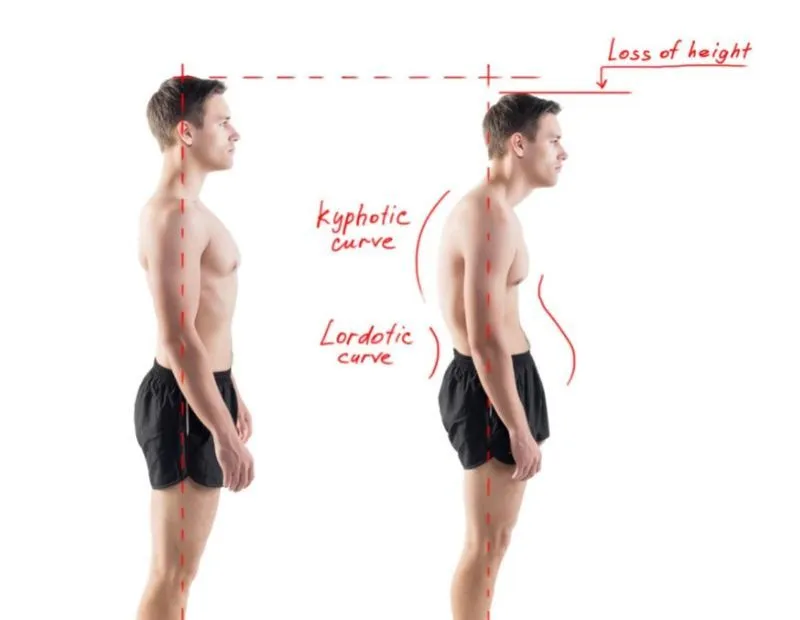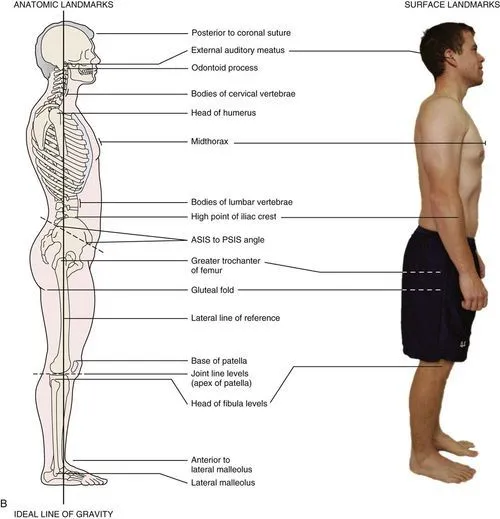
Understanding the Importance of Postural Assessment is crucial for maintaining spinal health and overall well-being. Regular postural assessment offers numerous benefits, including the early detection of musculoskeletal issues and the prevention of future spinal problems. Poor posture can have a significant impact on spinal health, leading to discomfort, pain, and reduced mobility. By incorporating postural assessment into preventive care, individuals can proactively address underlying issues and make necessary lifestyle adjustments to improve their posture and spinal alignment. This process not only helps in preventing future complications but also promotes overall wellness. As we delve deeper into the key components and techniques used in postural assessment, it becomes evident that this practice plays a vital role in chiropractic care. By customising treatment plans based on postural assessment results, chiropractors can address specific issues and educate patients about the importance of maintaining good posture for their spinal health. In addition, postural assessment can also serve as a diagnostic tool, identifying underlying musculoskeletal issues and their link to spinal conditions. By focusing on postural assessment, individuals can take proactive measures to improve their spinal health and enhance their overall quality of life.
Regular postural assessment is crucial for identifying and addressing any imbalances or misalignments in the spine. By conducting a thorough evaluation of an individual's posture, healthcare professionals can gain valuable insight into potential issues that may be causing discomfort or pain. This proactive approach allows for early intervention and tailored treatment plans to improve spinal health.
Poor posture can have detrimental effects on spinal health, leading to chronic back pain, reduced mobility, and increased risk of injury. Through postural assessment, healthcare providers can pinpoint areas of concern and develop strategies to correct poor habits and promote optimal alignment. This leads to better overall spinal function and reduces the likelihood of developing more serious musculoskeletal conditions over time.
Postural assessment plays a vital role in preventive care by empowering individuals to take an active role in maintaining their spinal health. Understanding how posture impacts overall well-being enables people to make conscious efforts to improve their daily habits and ergonomics. By making adjustments based on the findings of a postural evaluation, individuals can minimise strain on their spine and reduce the likelihood of experiencing discomfort or limitations associated with poor posture.

Conducting a postural assessment involves carefully observing an individual's posture and body alignment in both static and dynamic positions. Key components of this assessment include analysing the alignment of the head, shoulders, spine, hips, knees, and feet. Evaluating any asymmetries or deviations from ideal posture is important during the assessment process.
Various tools and techniques are utilised in postural assessments to aid in accurate observation and measurement. This may include plumb lines, grids, mirrors, goniometers for joint angle measurement, as well as specialised software for digital analysis. Additionally, manual palpation can also be used to assess soft tissue tension and muscle imbalances that contribute to poor posture.
Understanding the results of a postural assessment is crucial for developing an effective treatment plan. The data collected from the assessment provides valuable information about underlying musculoskeletal issues or movement patterns contributing to improper posture. By identifying these factors, healthcare professionals can tailor specific interventions such as corrective exercises, manual therapy techniques or ergonomic modifications to improve spinal health.

Incorporating postural assessment into chiropractic consultations is essential for understanding the root cause of spinal issues. By analysing a patient's posture, chiropractors can identify any misalignments or imbalances in the spine that may be causing discomfort or pain. This allows for a more targeted and personalised approach to treatment, as the chiropractor can tailor their adjustments and manipulations based on the specific needs of each individual.
Customising treatment plans based on postural assessment ensures that patients receive care that is specifically tailored to their unique situation. For example, if a patient presents with poor posture due to prolonged sitting at a desk job, the chiropractor can focus on realigning the spine and strengthening certain muscle groups to counteract the effects of prolonged sitting. This personalised approach not only leads to better outcomes but also emphasises the importance of addressing postural issues in tandem with other forms of spinal health maintenance.
Furthermore, educating patients about the importance of postural assessment empowers them to take an active role in maintaining their spinal health. By understanding how posture impacts overall well-being and function, individuals are more likely to prioritise practices such as ergonomic seating arrangements, regular movement breaks, and exercises targeting core stability. This proactive approach helps prevent future spinal issues and promotes long-term wellness.
Regular exercises and stretches aimed at improving posture are essential for maintaining spinal health. Simple movements such as shoulder rolls, back extensions, and hip flexor stretches can help to correct imbalances and strengthen muscles that support the spine. Additionally, incorporating yoga or Pilates into your fitness routine can also be beneficial for spinal alignment.
Incorporating ergonomic tips into daily activities is another crucial aspect of preventing spinal issues. This includes ensuring that workstations are set up correctly to promote good posture, using supportive chairs with proper lumbar support, and taking regular breaks to stand up and stretch throughout the day. Furthermore, being mindful of body positioning while lifting heavy objects or engaging in physical activities is important for protecting the spine from injury.
Lifestyle changes such as maintaining a healthy weight, quitting smoking (if applicable), and practising stress-reducing techniques can also contribute to overall better spinal health. Excess weight puts strain on the spine, while smoking has been linked to decreased bone density. Moreover, managing stress levels effectively can reduce tension in the muscles surrounding the spine, further promoting proper alignment.
Postural assessment is crucial for identifying and addressing postural issues in different age groups. For children and adolescents, a postural assessment helps in detecting any musculoskeletal imbalances or developmental abnormalities at an early stage, which can be corrected with appropriate intervention. As individuals grow into adulthood and senior years, postural changes occur due to ageing, lifestyle factors, or existing medical conditions. A thorough postural assessment can help identify these changes and develop strategies to maintain good posture and prevent spinal health issues.
When it comes to children and adolescents, a postural assessment may involve evaluating their standing posture, walking gait, spine alignment, as well as muscle strength and flexibility. For adults and seniors, the focus shifts towards assessing postural stability during daily activities such as sitting, standing, bending, lifting objects etc. Age-specific considerations are taken into account during the evaluation process to tailor interventions that address the unique needs of each age group.
By understanding the age-specific aspects of postural assessment, healthcare professionals can provide targeted interventions to optimise spinal health across different stages of life. Early detection of posture-related problems in children through regular assessments allows for timely correction and prevention of future complications. Similarly, for adults and seniors, ongoing monitoring through postural assessments enables proactive management of spinal health concerns.

Conducting a postural assessment is crucial in identifying underlying musculoskeletal issues that may contribute to spinal conditions. By evaluating an individual's posture, healthcare professionals can identify any abnormalities or asymmetries that may indicate potential problems with the spine. This diagnostic tool allows for early detection and intervention, ultimately promoting better spinal health.
Research has shown a clear link between postural abnormalities and various spinal conditions, such as kyphosis, scoliosis, and low back pain. Through a thorough assessment of posture, healthcare providers can not only detect existing issues but also monitor changes over time. By using this valuable diagnostic tool, individuals at risk for developing spinal problems can be identified earlier and provided with appropriate preventive measures or treatment.
In summary, postural assessment plays an essential role in the early detection of spinal problems by identifying deviations from normal alignment or function. Healthcare professionals can utilise this tool to conduct a comprehensive evaluation of an individual's posture and identify any potential musculoskeletal imbalances that may impact spinal health. Ultimately, by incorporating postural assessment into routine clinical practice, we can work towards promoting overall spine wellness.
The connection between posture and mental health is often overlooked, but it can have a significant impact on overall well-being. Poor posture has been linked to increased stress, anxiety, and even depression. When we slouch or hunch over, it affects not only our physical health but also our emotional state. By conducting a postural assessment, healthcare professionals can identify any issues with posture that may be contributing to mental health concerns.
In the realm of holistic healthcare, postural assessment plays an essential role. It provides valuable insights into how the body is functioning as a whole and helps practitioners develop comprehensive treatment plans. By addressing any postural imbalances or misalignments, individuals can experience improvements in their overall quality of life. Whether it's reducing back pain, enhancing mobility, or alleviating discomfort in other areas of the body - proper posture can positively influence daily activities and long-term health.
Ultimately, by prioritising postural assessment as part of healthcare management, individuals are taking proactive steps to improve their spinal health and overall well-being. This emphasis on proper alignment supports the body’s natural ability to maintain balance and function optimally. With heightened awareness around the importance of good posture for both physical and mental health outcomes comes greater opportunities for enhanced quality of life.
It is crucial to educate the community about the significance of postural assessment in maintaining spinal health and overall well-being. By raising awareness about posture, individuals can take proactive steps towards identifying and correcting any postural imbalances. Through educational workshops and informational sessions, we aim to empower people with the knowledge and tools needed to prioritise their posture.
In addition, promoting postural assessment in educational institutions is essential for instilling good habits from a young age. By integrating posture-focused initiatives into school curriculums, students can develop an understanding of how proper alignment and ergonomic practices contribute to their physical health. This not only benefits their current well-being but also sets a foundation for lifelong spinal care.
Engaging the community in activities that emphasise the importance of posture evaluation will further reinforce its value. Whether through interactive events or collaborative campaigns, our goal is to encourage active participation and create a culture where prioritising postural health becomes mainstream. By working together, we can make significant strides towards improving spinal wellness across all demographics.
Prime Chiro offers the best chiropractic care and consultation services for individuals in Lansvale NSW and nearby areas such as Fairfield, Liverpool, and Cabramatta. Our team of experienced chiropractors is dedicated to providing personalised and effective treatment plans to address a wide range of musculoskeletal issues, including back pain, neck pain, and headaches. Whether you are seeking relief from chronic pain or looking to improve your overall wellness, Prime Chiro is committed to helping you achieve optimal health. Contact us today to schedule a consultation and take the first step towards a pain-free and active lifestyle!
A postural assessment is a process of evaluating the alignment and positioning of the body to identify any imbalances or abnormalities that may be affecting spinal health.
A postural assessment is important for spinal health because it helps to identify any misalignments or imbalances in the body that can put a strain on the spine. By addressing these issues, it can help prevent or alleviate spinal problems and improve overall spinal health.
Anyone can benefit from a postural assessment, especially those who experience chronic back or neck pain, have poor posture, or engage in activities that may put strain on the spine. It can also be beneficial for athletes, individuals recovering from injuries, and those looking to improve their overall spinal health.
During a postural assessment, a trained professional will observe and analyse your body's alignment and posture from different angles. They may also use tools such as plumb lines or specialised software to measure and assess your posture. Based on the findings, they will provide recommendations and exercises to improve your posture and spinal health.
The frequency of postural assessments can vary depending on individual needs and goals. For those with existing spinal issues or chronic pain, more frequent assessments may be recommended. As a general guideline, it is recommended to have a postural assessment at least once a year to monitor and maintain spinal health.
Regular postural assessment is crucial for maintaining spinal health and preventing musculoskeletal issues. It plays a key role in chiropractic care, helps in the early detection of spinal problems, and can be customised for different age groups. Technology-driven postural assessment tools are being integrated for precise analysis, and educating the community about the importance of posture is essential for overall well-being.